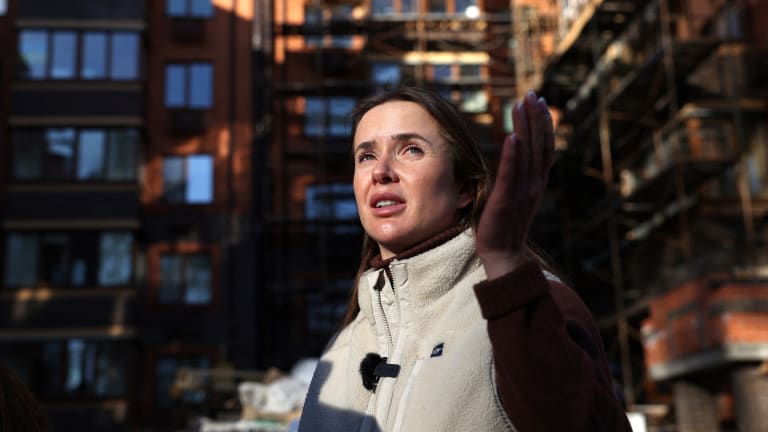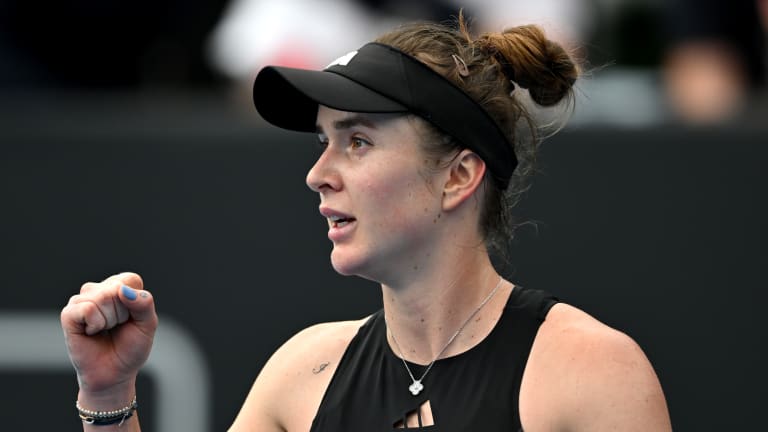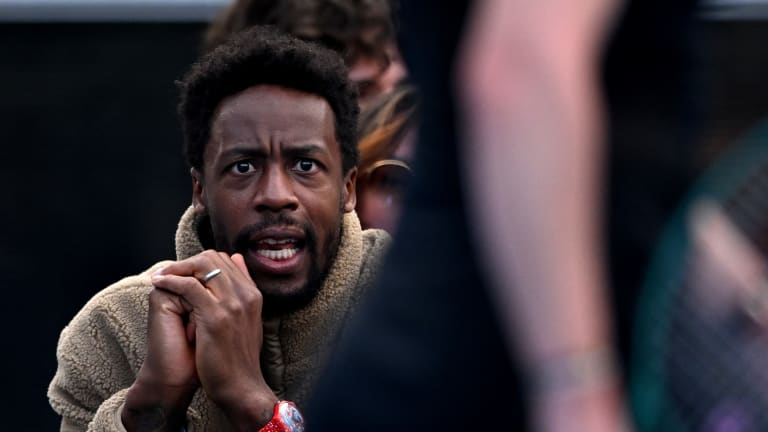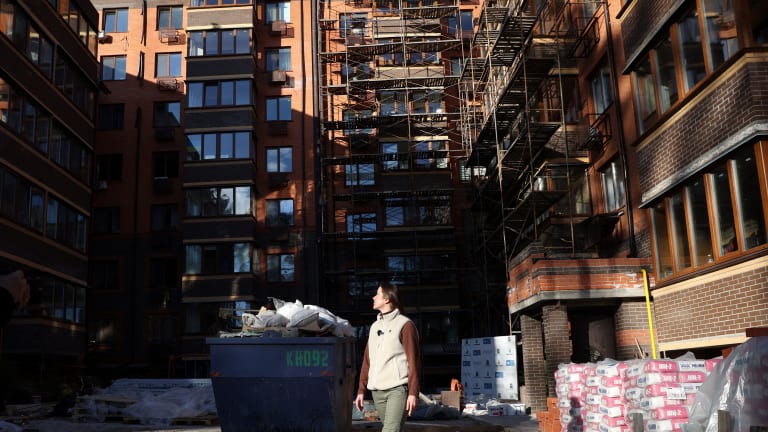Elina Svitolina has blossomed under adversity
By Jan 10, 2024Indian Wells Women's Preview: Will Aryna Sabalenka return to win a first title?
By Mar 03, 2026"A great birthday present": Jessica Pegula dismisses Elina Svitolina in Dubai for 10th career title
By Feb 21, 2026Elina Svitolina “fights like Ukraine,” wins three-hour Dubai tussle vs. Coco Gauff
By Feb 20, 2026Jessica Pegula now 5-0 against Amanda Anisimova after working way back into Dubai semifinal
By Feb 20, 2026At peace without a major title, Elina Svitolina is closer than ever to Grand Slam glory
By Feb 11, 2026Elina Svitolina returns to Top 10 on WTA rankings after sizzling start to 2026 season
By Feb 02, 2026“Go ahead, call it!” Aryna Sabalenka shrugs off hindrance call during Australian Open semis
By Jan 29, 2026Aryna Sabalenka storms into fourth straight Australian Open final
By Jan 29, 2026Australian Open Women's SF Preview: Sabalenka vs. Svitolina, Rybakina vs. Pegula
By Jan 28, 2026Elina Svitolina has blossomed under adversity
The Ukrainian is playing better than ever, despite being busier than ever—all while dealing with the realities of war back home.
Published Jan 10, 2024
Advertising

Elina Svitolina is an empath who will not let us check our humanity at the turnstile while we go get entertained.
© AFP via Getty Images
Advertising

“I always remind myself that there are people right now, men and women, who are fighting for our country,” Svitolina told the New Zealand Herald, describing her commitment to pushing through injuries and exhaustion to the bitter end, regardless of the outcome.
© Getty Images
Advertising

Gael Monfils' support has emboldened Svitolina on and off the court. The results speak for themselves.
© Getty Images
Advertising

“I’m here in a safe place and I have this amazing opportunity to play tennis in front of so many people—the sport that I love,” said Svitolina, who regularly visits Ukraine. “I have to treasure this moment.”
© AFP via Getty Images